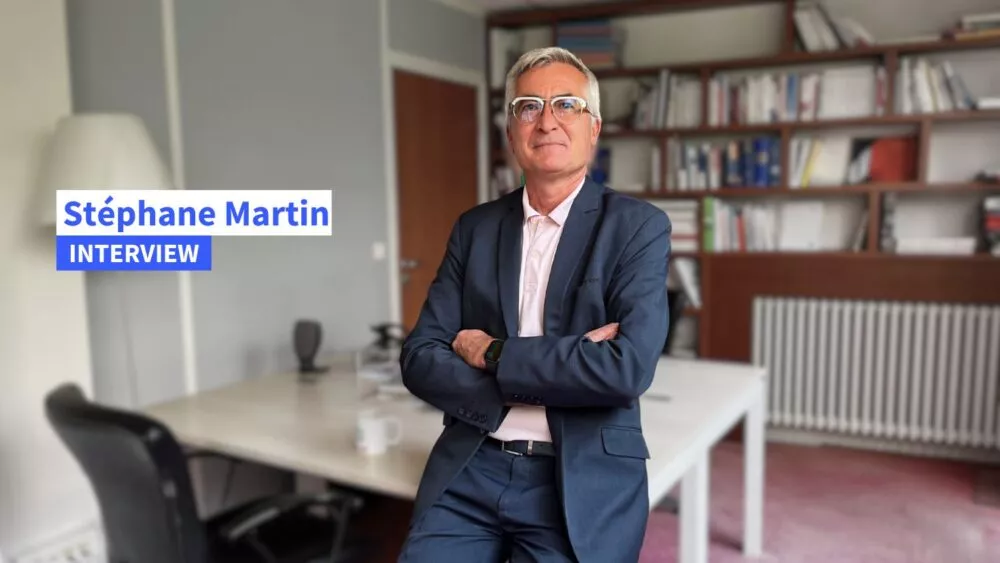The November 2024 event of Les Relocalisateurs highlighted the dangers of a decline in advertising investments in traditional media, in favor of social networks. How do you explain this evolution?
The evolution is mainly linked to individuals’ habits, especially young people’s, who use social networks to get informed instead of more traditional media. Quite logically, advertisers then turn to these platforms where the audiences are concentrated. Moreover, advertising costs on these platforms are, in absolute terms, attractive to advertisers compared to more historic media. So the choice is made quite quickly…
What risks can be caused by this increase in advertising investments going towards the GAFA (Google, Apple, Facebook, Amazon)?
First, there is a risk to democratic balance. Historic media invest in teams of journalists who work with a goal of quality information, with ethics. All this work allows developing critical thinking and individuals’ discernment ability. We are not in the same dynamic with social networks, so using information through platforms is obviously very dangerous in a context where all individuals are both consumers and producers of content. There are several cases showing, in a given geographic area, that the absence of local, historic media represents a risk for the production of fake news and the spread of conspiracy theories.
Beyond society, there are risks for our brands. Media diversity means a variety of possible contact points for a brand and thus the ability to work with different types of media partners depending on goals and needs. Losing this diversity means losing a wealth of possibilities. Our goal is to develop strong values for our advertiser brands. The risk is missing the association with historic media that are themselves brands with a strong DNA and can help boost certain values. That’s why I think the choice of media brands in our plans should be considered as “co-branding.”
The study commissioned by Les Relocalisateurs in November 2024 also warns about job losses related to this shift of advertising increasingly toward GAFA: what is the link between job losses and advertising?
Indeed, it’s a whole economic and social ecosystem created by historic and local media based in France that directly benefits the French economy. Platforms operate on a different model. And the economic impact study conducted for Les Relocalisateurs shows the negative impact on France’s GDP and revenues of increased investments in platforms. Without opposing media and platforms, we need to address these issues of declining advertising investments to avoid catastrophic scenarios. In terms of job losses, the economy, but also, as mentioned earlier, democracy and citizenship.
Within the Positive Media Project, you are conducting a study on the perception of the link between advertising investments and media diversity. Could you briefly explain the origin of this project?
We launched the Positive Media Project four years ago in response to growing questions about responsibility in communication, on environmental issues, representation, etc. But for this fourth cycle, we chose to focus on media and democratic balance, because CSR isn’t just about environmental issues. We felt it was important to conduct a study assessing people’s understanding of these issues, looking both at the general public and ecosystem players: our clients, media partners, and talents.
So, what did you find?
It turns out that only 26% of the general public perceive the link between advertising investments and preserving media diversity. People don’t really understand that advertising plays an essential role in the existence of media, so they can continue producing quality information. The figure is higher among ecosystem professionals (clients, media partners, talents), but only reaches 54%. Furthermore, barely 55% of French people connect media diversity to democratic balance. These results show that collectively we have forgotten (or never learned) the importance of historic media and their impact on society but also on brands in marketing terms. So, it seemed important to raise team awareness of these issues as part of this Positive Media Project session.
How did you address these training issues?
The fourth cycle of the Positive Media Project is organized into half-day sessions from December to January, where experts shed light on democratic balance. Media partners explained how they adapt their offerings to attract audiences around information—we hosted Olivier Laffargue, head of video at Le Monde’s vertical service. We also held a session on the risks AI poses to democracy, with interventions from Estelle Cognacq, deputy director of France Info. PMP Strategy shared detailed results of the Arcom study. These moments allowed us to exchange and imagine solutions together.
Internally, we have a training program to raise awareness that media choice is not trivial. Our goal is to move beyond a very limited vision of brand performance linked only to the bottom of the funnel, short term, immediate conversion. It’s important, but performance must also build brand values, medium and long term, and take responsibility into account, because that’s what citizens demand.
How do you see the future?
I think it’s crucial to collectively familiarize ourselves with these issues. We need to continue this awareness work on a much larger scale. We plan to publish a white paper in mid-December summarizing this latest Positive Media Project edition, which we will share with the entire ecosystem.
How can we recreate attraction for traditional media?
I believe it’s important to support media in enhancing their brand value. It mainly means emphasizing their uniqueness, working on their modernity, and highlighting the distinctive features they have. We must also offer an experience for individuals that matches what platforms offer. Media brands already have strong and loyal communities, but the goal is to collectively extend the desirability these brands can generate, just like we do with our advertiser brands.









